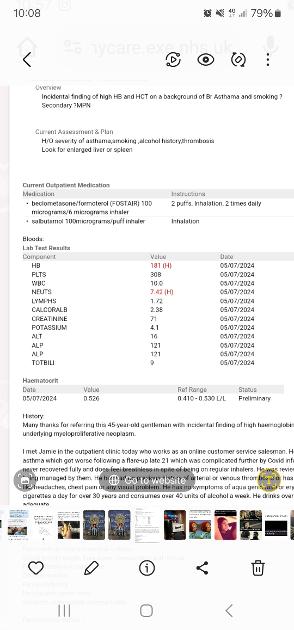Hi Ive just joined, I have quite bad asthma and was reffered to a clinc without did various blood tests and found raised hb and heaomocrit levels and i then saw a heamototolgist who diagnosed secondary polycythemia likely due to smoking for 25 years with asthma.I'm awaiting blood tests to confirm if it's not primary with the gene mutation in bone marrow
I have obviously Googled things and any information anyone can give would be great, it's hard to know if my fatigue tight chest, intolerance to heat is due to that or my asthma.
I am trying to drink more water I probably didn't drink enough before at all and although I'm still smoking I am going to give up very soon.
I've attached a screen shot of my blood levels, is this high enough to cause noticeable symptoms?
Also I've read secondary can be resolved by stopping the thing that caused it I.e smoking would that make a noticeable difference, would the blood levels go back to normal or near normal?
Thanks for any help
